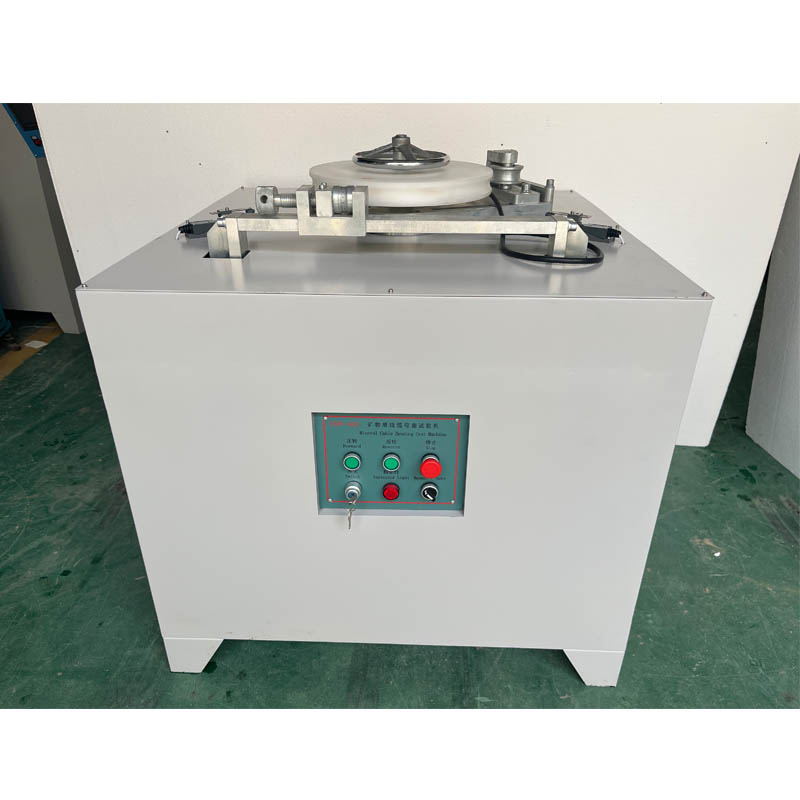Leading Companies in Electronic Tensile Testing Machines for Quality Assurance and Research
Understanding the Landscape of Electronic Tensile Testing Machine Companies
In the realm of material science and engineering, electronic tensile testing machines play a pivotal role in assessing the mechanical properties of materials. These machines are designed to evaluate how materials respond to tension, measuring their strength, ductility, and elasticity. As industries increasingly prioritize quality assurance and material performance, the demand for reliable and precise tensile testing equipment has surged. This article delves into the landscape of electronic tensile testing machine companies, exploring their significance, major players, and the trends shaping the industry.
The Significance of Electronic Tensile Testing Machines
Electronic tensile testing machines provide critical insights into how materials behave under stress. These insights are crucial for sectors such as construction, manufacturing, aerospace, and automotive, where the integrity of materials directly affects safety and performance. By quantifying properties such as yield strength, ultimate tensile strength, elongation, and reduction in area, these machines help ensure that products can withstand their intended applications.
Moreover, as standards and regulations tighten in various industries, the importance of precise and reliable testing equipment becomes even more evident. Companies must invest in high-quality electronic tensile testing machines to comply with international standards such as ASTM, ISO, and others.
Key Players in the Market
The market for electronic tensile testing machines is populated by numerous companies, each offering different features and capabilities in their products. Some of the most prominent players include
1. Instron A leader in the testing systems market, Instron is well-known for its advanced electronic tensile testing machines. They offer a wide range of models suited for various applications, from basic quality control to complex research needs. Their machines are lauded for their accuracy, versatility, and user-friendly interface.
2. MTS Systems Corporation Another major player, MTS provides a comprehensive range of testing equipment, including electronic tensile testers. Their systems are widely used in both industrial and academic settings, known for their innovative technology and robust software solutions.
3. ZwickRoell This company is recognized for its high-precision testing machines, and it offers tailored solutions for specific customer needs. ZwickRoell focuses on making their machines more efficient and user-friendly, aligning with the growing demand for automation in testing processes.
electronic tensile testing machine companies

4. Shimadzu Corporation With a strong foothold in the scientific instrumentation market, Shimadzu provides advanced tensile testing machines that are equipped with cutting-edge technology, ensuring precision and reliability.
5. Tinius Olsen Known for their long history in the testing industry, Tinius Olsen offers various tensile testing machines designed for diverse materials and applications. Their machines emphasize robustness and accuracy, catering to both industrial and educational applications.
Trends Influencing the Industry
Several trends are currently shaping the electronic tensile testing machine market
- Automation and Software Integration As companies strive for efficiency, there is a growing trend toward integrating automation in testing processes. Test machines paired with sophisticated software can streamline operations, reduce human error, and facilitate real-time data analysis.
- Sustainability Environmental concerns are prompting manufacturers to develop testing machines with energy-efficient designs and sustainable materials. The emphasis on sustainability is becoming essential in the selection of testing equipment.
- Customization As industries evolve, so do their testing requirements. Many companies are now looking for customizable solutions that can adapt to specific testing protocols, material types, and industry standards.
- Technological Advancements Innovations in sensor technology, data acquisition systems, and software analytics are enhancing the capabilities of electronic tensile testing machines. Manufacturers are investing heavily in research and development to stay competitive in delivering advanced solutions.
Conclusion
Electronic tensile testing machines are indispensable tools in the modern material testing landscape. They ensure materials meet stringent performance standards while continuously adapting to the evolving needs of various industries. Major players in this field are investing in technology and innovation to provide machines that enhance testing accuracy and efficiency. As the market grows, companies that embrace automation, sustainability, and customization will likely lead the way in meeting the demands of the future.
-
Why the Conductor Resistance Constant Temperature Measurement Machine Redefines Precision
NewsJun.20,2025
-
Reliable Testing Starts Here: Why the High Insulation Resistance Measuring Instrument Is a Must-Have
NewsJun.20,2025
-
Flexible Cable Flexing Test Equipment: The Precision Standard for Cable Durability and Performance Testing
NewsJun.20,2025
-
Digital Measurement Projector: Precision Visualization for Modern Manufacturing
NewsJun.20,2025
-
Computer Control Electronic Tensile Tester: Precision and Power for the Modern Metal Industry
NewsJun.20,2025
-
Cable Spark Tester: Your Ultimate Insulation Assurance for Wire and Cable Testing
NewsJun.20,2025
 Copyright © 2025 Hebei Fangyuan Instrument & Equipment Co.,Ltd. All Rights Reserved. Sitemap | Privacy Policy
Copyright © 2025 Hebei Fangyuan Instrument & Equipment Co.,Ltd. All Rights Reserved. Sitemap | Privacy Policy
